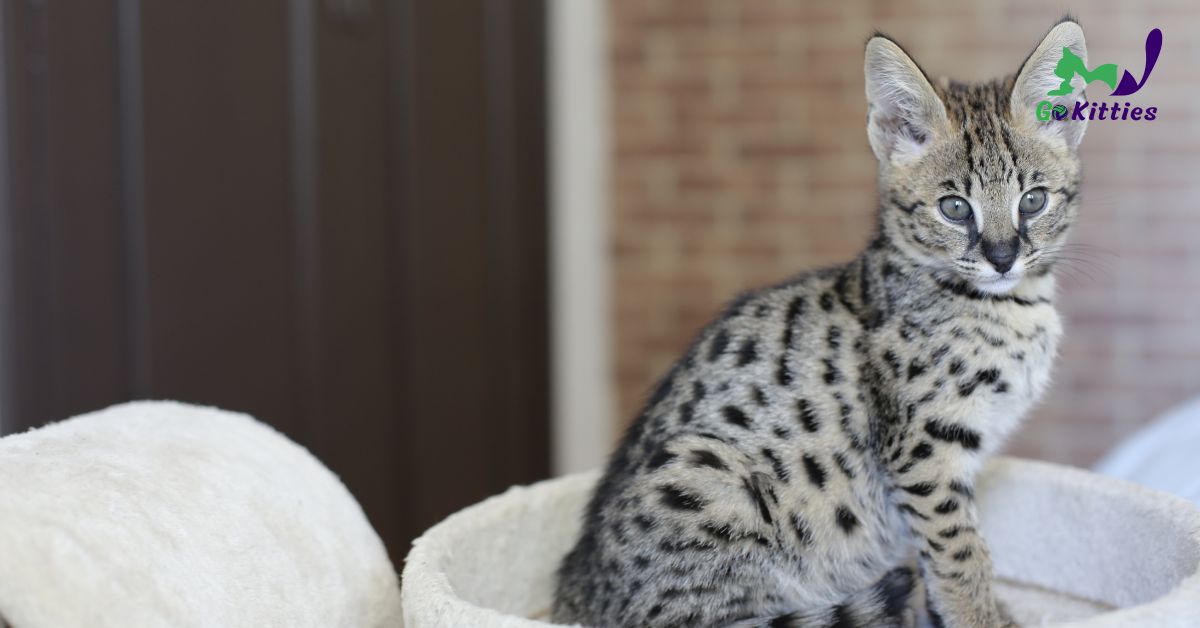If you’re a cat owner or just a lover of all things feline, you may have heard of the Savannah cat. This unique breed is gaining in popularity thanks to its beautiful coat, friendly personality, and impressive size. But what is a Savannah cat exactly? How do you care for one? What kind of health problems can they develop? Keep reading to find out everything you need to know about the Savannah cat breed!
Breed Overview
-Height: 17-19 inches
-Weight: 15-25 pounds
-Coat: Spotted or marbled with large rosettes
-Color: Black, brown, silver, or gold with high-contrast markings
-Life Expectancy: 12-20 years
-Origin: United States
-Temperament: Friendly, playful, active
Characteristics
-Unique physical appearance: The Savannah is a medium to a large-sized cat with long legs, big ears, and a slender, graceful build. They are the largest domestic cat breed in the world and can weigh up to 25 pounds!
-High intelligence: Savannah cats are very intelligent and easily trained. They can learn tricks, walk on a leash, and even come when called!
-Extremely active: This is not a lazy house cat! Savannahs need lots of space to run and play. A bored Savannah may turn to destructive behaviors like climbing curtains or scratching furniture.
-Great hunters: Thanks to their wild ancestors, Savannahs have strong hunting instincts. If you own one of these cats, be sure to provide plenty of toys and playtime to keep their minds and bodies active.

Health Issues Of Savannah Cats
1. Hypertrophic cardiomyopathy (HCM): This is a heart condition that can lead to heart failure. HCM is the most common cause of death in domestic cats, and Savannahs are no exception. Be sure to take your Savannah to the vet for regular check-ups and to get an ultrasound of their heart if they show any signs of illness.
2. Respiratory problems: Savannahs are prone to respiratory infections and asthma due to their long, slender build and big ears. Be sure to keep an eye on your cat’s breathing and take them to the vet if you notice any wheezing or difficulty breathing.
3. Kidney disease: Savannah cats are also at risk for kidney disease, so it’s important to keep an eye on their water intake and urine output. If you notice your cat is drinking more water than usual or urinating more frequently, take them to the vet for a check-up.
4. Diabetes: Diabetes is a common health problem in domestic cats, and Savannahs are no exception. Symptoms of diabetes include increased thirst, urination, and appetite. If you notice any of these signs in your cat, take them to the vet for a check-up.
5. Gastrointestinal problems: Savannah cats are prone to gastrointestinal problems such as vomiting and diarrhea. Be sure to keep an eye on your cat’s stool and take them to the vet if you notice any changes in their bathroom habits.

Caring For Your Savannah Cat
1. Provide plenty of space: As we mentioned before, Savannahs are extremely active cats and need plenty of space to run and play. If you live in a small apartment or home, consider getting your cat a large cage or enclosure that they can use when they need to burn off some energy.
2. Give them lots of toys: Keeping your Savannah entertained is key to preventing destructive behaviors. Be sure to provide them with plenty of toys, including climbing structures, scratching posts, and toy balls.
3. Keep their claws trimmed: Like all cats, Savannahs have sharp claws that can do a lot of damage to your furniture and belongings. Be sure to keep their claws trimmed and filed down to prevent any accidents.
4. Provide a healthy diet: As with all cats, it’s important to provide your Savannah with a healthy diet that includes plenty of protein and essential nutrients. You can ask your vet for recommendations on the best food for your cat.
5. Take them to the vet regularly: Be sure to take your Savannah to the vet for regular check-ups and vaccinations. If you notice any changes in their behavior or health, be sure to take them in for a check-up right away.

Feeding Tips For Your Savannah Cat
1. Choose a high-quality cat food: As we mentioned before, it’s important to provide your Savannah with a healthy diet that includes plenty of protein and essential nutrients. Be sure to choose high-quality cat food that is specifically formulated for their needs.
2. Feed them on a regular schedule: It’s important to feed your Savannah on a regular schedule to prevent them from becoming overweight or obese. Be sure to consult with your vet about how often you should be feeding your cat.
3. Don’t overfeed them: Overeating can lead to obesity and health problems, so be sure to only feed your Savannah the recommended amount of food. If you’re not sure how much to feed them, ask your vet for guidance.
4. Provide plenty of water: Be sure to always provide your Savannah with plenty of fresh, clean water. You can put a water fountain in their enclosure to encourage them to drink more water.
5. Avoid giving them table scraps: It’s tempting to give your cat a little taste of what you’re eating, but it’s important to avoid giving them table scraps. This can lead to digestive problems and obesity. If you want to treat your cat, give them a small amount of high-quality cat food instead.
Conclusion
Savannah cats are a unique and fascinating breed of cat. If you’re considering getting one, be sure to do your research and choose a reputable breeder. Once you bring your Savannah home, be sure to provide them with plenty of space, toys, and a healthy diet. And don’t forget to take them to the vet regularly for check-ups and vaccinations.
Frequently Asked Questions About Savannah Cats
1. How big do Savannah cats get?
Savannah cats can range in size from small to large, depending on their lineage. Some Savannahs can grow to be as big as a small dog, while others may only reach the size of a domestic cat.
2. How much do Savannah cats cost?
The price of a Savannah cat can vary depending on its size, color, and markings. Generally speaking, Savannah cats can cost anywhere from $1,000 to $10,000.
3. Do Savannah cats make good pets?
Whether or not a Savannah cat makes a good pet depends on its individual personality. Some Savannahs are affectionate and social, while others may be more independent and aloof. It’s important to do your research and choose a cat that will fit well into your home and lifestyle.
4. How long do Savannah cats live?
Savannah cats typically have a lifespan of 12-20 years, though some individual cats may live longer or shorter lives.
5. Do Savannah cats require special care?
Savannah cats require the same basic care as any other type of cat, but they may need more space and enrichment than other breeds. Be sure to do your research and consult with your vet to make sure you’re providing everything your Savannah needs to thrive.







